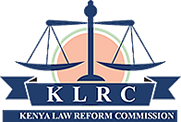{jcomments off}
The Case For Reform Of The Tribunal System
Introduction
At a time when Kenyans are striving to reform the judiciary, among other institutions, to ensure greater access to justice for majority of the citizens, it is imperative that we examine how Tribunals have fared in resolving disputes either between citizens inter se or between citizens and government departments in Kenya. Tribunals normally address issues of administrative justice, which would otherwise end up for adjudication and resolution by the ordinary courts. To the extent that Tribunals are an important alternative forum to the regular courts for remedying citizen’s grievances and addressing administrative justice issues, it is important to evaluate how they have discharged their critical mandate.
Tribunals are now accepted as a fact of life. Virtually each new statute that Parliament enacts sets up a Tribunal of one type or another to consider applications for licenses, to enforce professional and ethical standards and discipline, to adjudicate on disputes arising from administration or application of the statute, etc. They enjoy obvious advantages over the regular courts, which make them quite appealing. To begin with, they are more accessible to a greater part of the population. Their proceedings are far much cheaper and speedier. They tend to apply simpler procedures, are less technical and have the ability to foster informal justice. More importantly, they have capacity to evolve specialisation and expertise in their field of jurisdiction.
These advantages notwithstanding, an examination of the various Tribunals existing in Kenya today will show an area mired in confusion and uncertainty. There exist many Tribunals each independent of the other, appointed and constituted differently, operating on different procedural rules and with different degrees of accountability. This raises fundamental questions whose answers must impact greatly on the ability of Tribunals to deliver justice to Kenyans.
Some of these questions include: Are our Tribunals part of the Government machinery, the judiciary or are they independent adjudicatory bodies? How are members of the Tribunals appointed? What are their terms of service and how are they removed from office? How independent and impartial are our Tribunals? How accountable, transparent, competent are they? Why are the decisions of some Tribunals final whilst others are appealable to other Tribunals or the High Court? Why do different Tribunals have different rules of procedure, some adopting procedures akin to those of regular courts whilst others are quite informal? Why do some Tribunals expressly allow representation by counsel whilst others are silent on the issue? How does this dichotomy impact on the ability of Kenyans to access justice and to what extent does our present tribunal system ensure or guarantee equal justice for all Kenyans? Is the present state of affairs desirable or should we adopt common standards and procedures for all Tribunals?
These are some of the issues that this paper attempts to address
